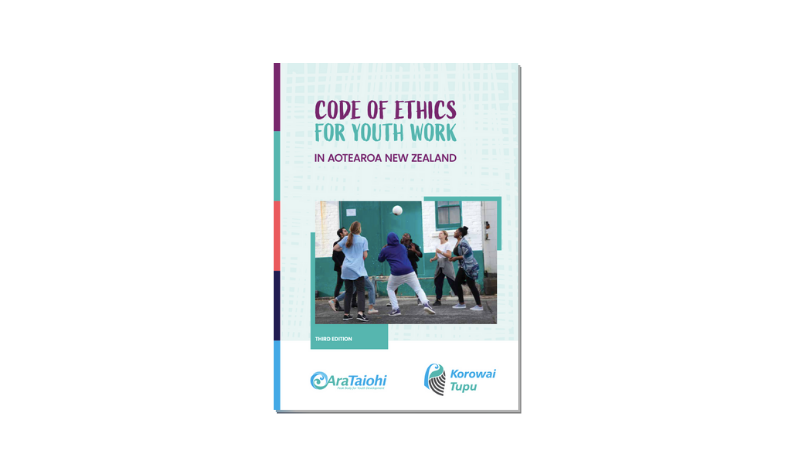With young people we explore Te Ao.
Te Ao Taiohi is the world of the young person. It is impacted by big picture influences such as social and economic contexts and dominant cultural values. It includes Te Tiriti o Waitangi; the effects of colonisation in Aotearoa; local, national and international legislation; and policy that impacts young people. Awareness of Te Ao Taiohi ensures actions are not judged purely on the surface, but with an understanding of systemic influences that affect young people. Young people are supported to engage with the dynamics in their changing world.
He manu hou ahau, he pī ka rere
I am a young bird, a chick just learning to fly
This stands for a young person or one just learning a skill.
(Mead & Grove, 2004)
10. Ngā tikanga | Rights and responsibilities
10.1 Youth workers respect the rights of young people that they work with and support them to respect the rights of others.
10.2 Youth workers acknowledge rights-based legislation, including:
- Te Tiriti o Waitangi
- Universal Declaration of Human Rights
- United Nations Declaration on the Rights of Indigenous People
- United Nations Convention on the Rights of the Child
- Human Rights Act 1993
- New Zealand Bill of Rights Act 1990.
10.3 Youth workers are aware of legislation, public policies, systems and strategies that affect young people in Aotearoa, and acknowledge the limitations of these due to colonisation.
11. Ā-ipurangi | Youth work online
11.1 Youth workers acknowledge the benefits and limitations of Youth Work online.
11.2 Youth workers transfer in-person practices and decision making into an online context.
11.3 Youth workers support young people to take control of their relationship with the digital world, social media and technology, and promote critical thinking.
11.4 Youth workers seek consistency and authenticity between their online and in-person worlds, upholding the reputation of Youth Work.
11.5 Youth Work online affirms the youth workers’ commitment to Te Tiriti o Waitangi.
11.6 Youth workers acknowledge the provisions of the Harmful Digital Communications Act, and actively work to ensure young people can engage safely and effectively online, considering their age and stage of development.
12. Mana taurite | Equity
12.1 Youth workers ensure that their practice is equitable.
12.2 Youth workers are inclusive and ensure accessibility of Youth Work services, programmes, events and activities to all.
12.3 Youth workers challenge systems, attitudes, beliefs, policies and practices that negatively impact the lives of young people, and act as advocates to remove these barriers.
12.4 Youth workers do not unlawfully discriminate against young people for any reason, including those contained in the Human Rights Act 1993.
13. Mata huhua | Diversity
13.1 Youth workers respect and value the young person’s culture.
13.2 Youth workers understand that all aspects of the lives of young people are influenced by the values of the cultural contexts they belong to. A young person’s cultural context can be centred around:
- identity/whakapapa-based community (e.g. culture, ethnicity, marae, iwi, hapū, whānau, spirituality or faith, their gender, sexual orientation, variation of sex characteristics, or people of mixed abilities)
- community of interest (e.g. various youth subcultures, youth organisations)
- place based (e.g. their home, neighbourhood, place of study, workplace, marae or church).
13.3 When conflict exists between the cultures of the youth worker and the young person, the youth worker will do everything in their power to ensure the appropriate people and/or organisations are involved.
NextWhanaungatanga